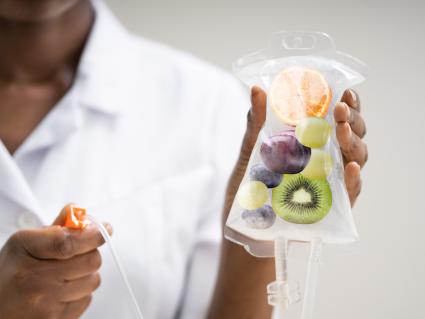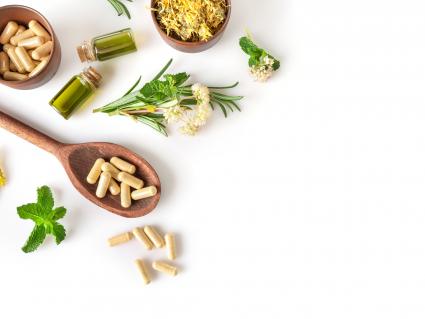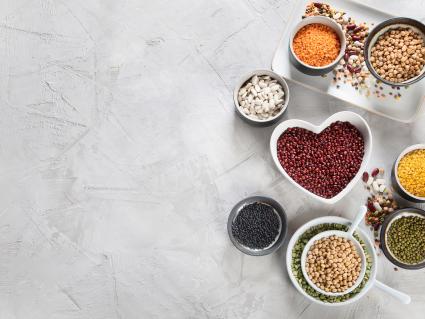Optimal Thyroid Health: A Focus on a Gluten-Free Diet

It’s estimated that 20 million Americans have some sort of thyroid disease, meaning an issue with their thyroid gland that causes it to either under or over-produce thyroid hormones. These hormones are responsible for regulating the body’s metabolism and without proper diagnosis and treatment, thyroid disease can lead to further complications of the heart, fertility, bone health, and weight gain or weight loss. Women are 5-8 times more likely than men to have thyroid problems.
Hyperthyroidism is when the thyroid gland overproduces hormones and as a result, the metabolism increases beyond what is healthy. Individuals with hyperthyroidism often struggle to keep weight on, despite eating adequate or increased food intake.
Some other symptoms they may experience include an increased heartrate, anxiety, sweating, trembling fingers, and heat intolerance.
Conversely, those with hypothyroidism, or an underproduction of thyroid hormone, typically struggle with unexplained weight gain. Additionally, some common symptoms include fatigue, sensitivity to cold, dry skin, pain/stiffness in their joints, hair loss/thinning, thin or brittle nails, puffy face, and constipation. Hashimoto’s disease is the most common cause of hypothyroidism and this autoimmune disease attacks the thyroid gland, leading to an underproduction of thyroid hormones.
For the purpose of this post, we will focus on hypothyroidism, as it is more common in the US. Food plays a role in many ways, when it comes to hypothyroidism. It not only can be a contributing factor to the root cause but eating the right foods (and avoiding harmful foods or ingredients) are a critical piece of healing and managing symptoms.
Some foods to avoid with hypothyroidism include gluten, sugar, processed foods, and any foods the individual is sensitive or allergic to. Processed foods often contain an abundance of inflammatory ingredients, including industrial vegetable and seed oils, additives, food dyes, artificial flavorings, and other non-natural components. Our bodies have a hard time recognizing and digesting these ingredients so over time the body’s immune system gets involved, thinking that these processed foods are dangerous. This is where the thyroid gland kicks into gear and in an effort to protect us, it often overworks itself. That’s why in many cases, some individuals actually experience a temporary state of hyperthyroidism followed by a prolonged hypothyroidism.
Gluten has a similar molecular structure to thyroid tissue, so a gluten sensitivity causes the body to attack the thyroid as a function of defense. Gluten sensitivities are very common, and many individuals don’t even know they have it. Since gluten contains an inflammatory protein that passes through the body not fully digested, it is a known irritant and root cause for not only inflammation but also gut issues.
While we want to avoid the foods that cause or contribute to thyroid disease, we equally want to include foods that heal. An anti-inflammatory diet includes high-quality proteins from a variety of sources (animal-based, plant-based, and fish). Additionally, bright-colored fruits and veggies as well as dark, leafy greens contain a wide array of healing plant properties. And last but not least, make sure to incorporate healthy fats, such as avocado and avocado oil, olives and olive oil, nuts, seeds, and fatty fish. In essence, taste the rainbow and feel your best.
Related Blog Posts
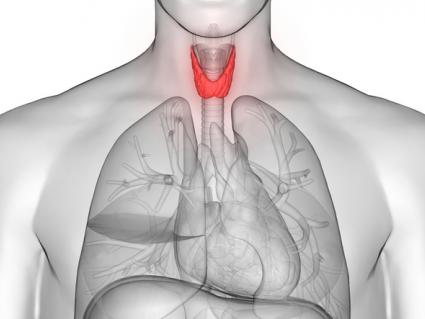
Factors That Support Thyroid Health | Naturally
Natural ways to support thyroid health.Read the Post
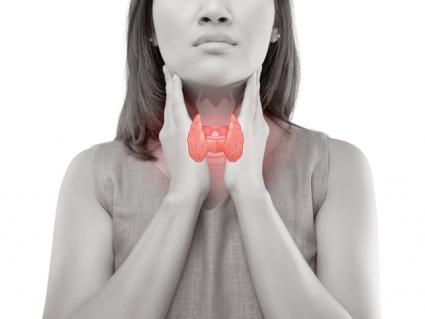
How To Love Your Thyroid
Why it's important to care for and listen to your thyroid.Read the Post
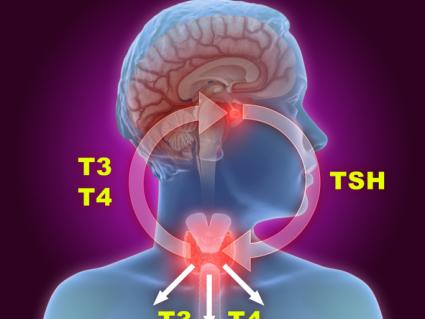
Our Thyroid & How It Works
How our thyroid acts like the central heating unit for our body.Read the Post

Take Charge of Your Thyroid Disorder with Acupuncture Pressure Point #17: The Small Intestine
As a complete system of medicine, acupuncture and Chinese herbal medicine treats and supports not only pain, which is what brings most people in, but in fact anything health and medically related, including endocrine issues such hyper- and hypothyroid. The approach in diagnosis and treatment is much different than a western medical doctor, of course, but one that can be integrated into…Read the Post
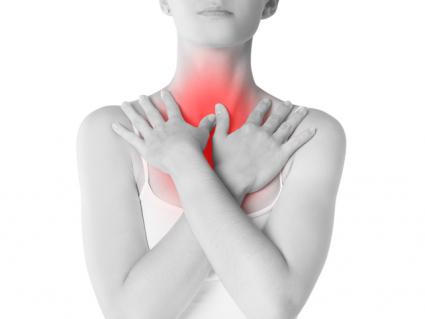
The Thyroid & Chinese Herbal Medicine
Thyroid imbalance impacts our body in different ways.Read the Post
Related Services

Supplements and Vitamins
Our natural remedies and supplements are carefully selected by our doctors and may be taken to promote natural healing and help treat a variety of conditions such as...Supplements and Vitamins

Acupuncture
Did you know that acupuncture has been shown to be more effective than conventional treatment for migraines, back and knee pain? Acupuncture is also the complementary therapy most recommended by medical doctors (M.D.'s), and is covered under more insurance plans than ever before. No other traditional healing method has ever earned as much world-wide success, recognition and support! Acupuncture…Acupuncture
Integrative Medicine
Integrative medicine is the blending of conventional medicine with holistic, complementary, and alternative medicine. Integrative Medicine is defined as healing-oriented medicine that takes account of the whole person (body, mind, heart and spirit), including all aspects of lifestyle. It emphasizes the therapeutic relationship and makes use of all appropriate therapies, both conventional and…Integrative Medicine

Women’s Health
Our reproductive health and fertility are a part, expression and source of our overall health. At The Stram Center we maintain that a broader understanding of the individual is just as essential as a focused examination of the reproductive system and it’s functioning within that person. Our integrative approach to women’s health provides holistic, balanced and effective care to achieve…Women’s Health

Chinese Herbal Medicine
Desiring a healthier life may be your goal, but for you and millions others it can prove more challenging. You may feel that your immunity is low. You may be in a state of physiological, mental or emotional unrest. Or you may be faced with a more serious illness or chronic pain.Chinese Herbal Medicine











